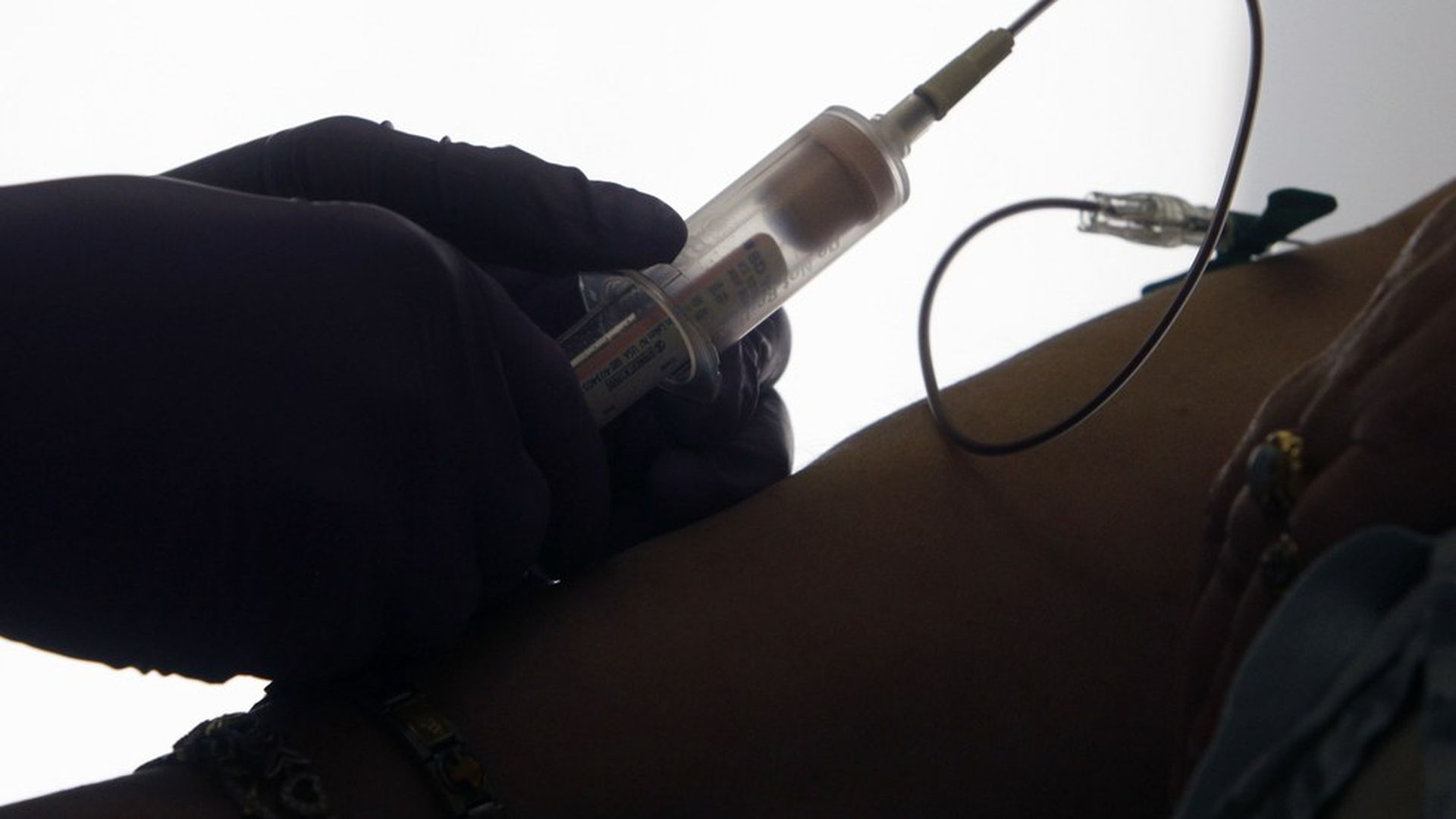New blood test can detect early stage of some cancers: study
Add Axios as your preferred source to
see more of our stories on Google.

Cancer screening blood test Photo: Jacqueline Larma / AP
A spate of recent studies on liquid biopsies for cancer suggests researchers are making progress toward their ultimate goal of non-invasive diagnostics for evaluating how well a cancer treatment is working and early detection of the disease. However, the tests remain in early stages of development and still face doubts from some experts as to whether they can overcome issues like high rates of false negatives or positives.
"This is the wave of the future...The question is: How do we do it better? There are lots of directions it can move in," Eric Topol, genomics scientist and director of The Scripps Research Institute not involved in these studies, told Axios.
Early cancer detection study: A Johns Hopkins team announced Wednesday they have developed a blood test that spots tiny bits of DNA in the blood and, in the study, used them to accurately identified more than half of 138 people with relatively early stages of colorectal, breast, lung, and ovarian cancers.
Other recent research includes:
- a blood test for nasopharyngeal cancer being developed in Hong Kong by a company with a Silicon Valley connection
- a platelet test detecting RNA from lung cancer tumors
- a European study on how liquid biopsies can be used to check the effectiveness of treatment
- the detection of circulating tumor DNA (ctDNA) from the plasma of patients in a study at Stanford
Johns Hopkins' study: The team said they developed a new approach that can distinguish between the DNA shed from tumors and other altered DNA that occurs naturally in humans but is often mistaken for cancer biomarkers. The technique uses "deep sequencing," which reads 30,000 times each chemical code in more than 80,930 base pairs of DNA fragments.
They used it to find and test DNA in the blood of 44 healthy patients and 200 cancer patients, and were able to detect an average of 62% of stage I and II cancers in the participants. Specifically, they found stage I and II cancers in: 71% of colorectal patients, 59% of breast cancer patients, 59% of lung cancer patients, and 68% of ovarian cancer patients. While it is difficult to find ovarian cancer patients in stage I or II (it tends to be found in stage III or beyond), the team said it canvassed various institutions to obtain the samples.
"To our knowledge this is the first reported study where such an approach has used these steps to achieve direct detection of early stage cancers," study author Jillian Phallen told Axios via email.
And, importantly: When the researchers analyzed the blood of the 44 healthy volunteers, their tests showed very little false positives (roughly one false positive per 3.3 million letters of DNA sequenced.)
Another perspective: Theodora Ross, an oncologist at the UT Southwestern Medical Center who did not participate in any of these studies, told Axios it is too early to believe the hype surrounding liquid biopsies. She says "theoretically" the tests could be a great tool that would allow doctors to avoid tissue biopsies and to detect cancers earlier but there has not yet been any large verification studies that prove these tests will work.
Yes, but: Ross said the test developed at Johns Hopkins appears to be more sensitive than some other liquid biopsies, which was confirmed by the lower error rate in testing the healthy subjects. If this could be validated by larger studies, Ross said, this would help ease one of her main concerns about liquid biopsies:
- the prevalence of false positives (which may cause the patient to unnecessarily undergo severe radiation and chemo treatments or simply suffer with the knowledge of an incurable cancer longer)
- false negatives (which may allow the cancer to grow undetected).
Going forward: Topol agreed validation studies are needed for these studies, with the hope that eventually scientists will achieve more accurate results with lower costs. "There is no perfect study...but this is a step in the right direction," he said.
